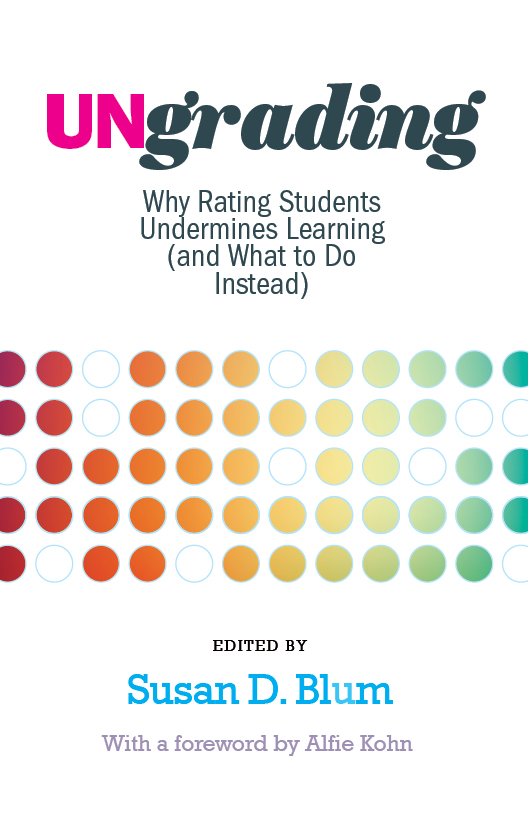Pedagogical Resources
16 Evaluation
Alternative Assessment Practices
Many faculty in the General Education English Program use a form of Alternative Assessment Practices, such as Ungrading.
Ungrading is a way of accessing and assessing student writing without the pressures of a traditionally quantified A-F grade scale rendered for each major project. Though ungrading can manifest in a variety of forms and levels, using the purest form means that completion rather than A-F grades are administered for daily work and class projects. Instead, final grades are based on the amount and types of work students complete. The purpose of ungrading is to focus on learning in class rather than enforcing a monolithic conception of “good writing.” Failure, messiness, and risk-taking are essential for developing as a writer, and ungrading creates space for these experiences in the writing classroom. This is often accomplished with regular feedback and opportunities for revision. Ungrading also helps students focus on their needs as writers and to take on further responsibility for their learning. Many faculty also find the use of “Single-Point Rubrics” helpful.
Below are additional articles and resources:
- Assessment Practices Annotated Bibliography, by Kate Pantelides and Erica Stone
- “Dialogic Assessment Agreements,” by Kate Pantelides, Samira Grayson, and Erica Stone
- Dialogic Assessment Agreement Template
-
“The Case Against Grades” by Alfie Kohn
-
“How to Ungrade” by Jesse Stommel
-
“What Going Gradeless Taught Me about Doing the “Actual Work” by Aaron Blackwelder
-
“Shifting the Grading Mindset” by Starr Sackstein
-
“Let’s Talk About Grading” podcast feat. Dr. Laura Gibbs
-
“Contract Grading and Peer Review” podcast with Dr. Christina Katopodis and Dr. Cathy Davidson
Resource Highlight: Ungrading: Why Rating Students Undermines Learning (and What to Do Instead)
Research and publications about ungrading can be found in Susan D. Blum’s anthology, Ungrading: Why Rating Students Undermines Learning (and What to Do Instead). A digital edition can be accessed through the Walker Library on Project MUSE.
West Virginia University Press summarizes Susan Blum’s anthology as follows:
“The moment is right for critical reflection on what has been assumed to be a core part of schooling. In Ungrading, fifteen educators write about their diverse experiences going gradeless. Some contributors are new to the practice and some have been engaging in it for decades. Some are in humanities and social sciences, some in STEM fields. Some are in higher education, but some are the K–12 pioneers who led the way. Based on rigorous and replicated research, this is the first book to show why and how faculty who wish to focus on learning, rather than sorting or judging, might proceed. It includes honest reflection on what makes ungrading challenging, and testimonials about what makes it transformative.”



